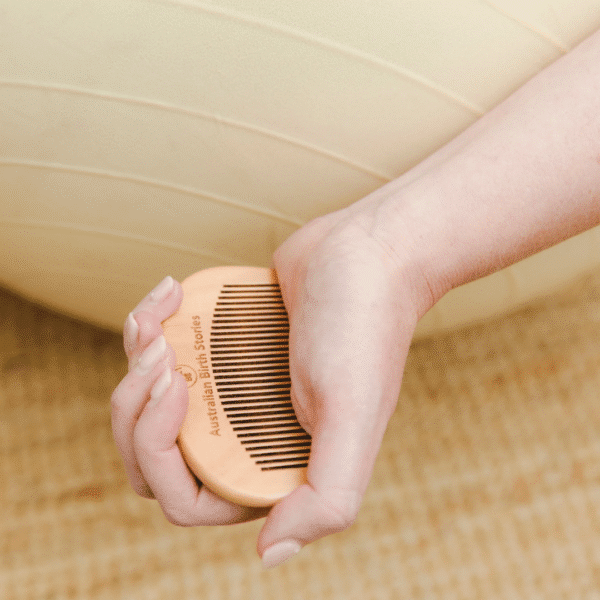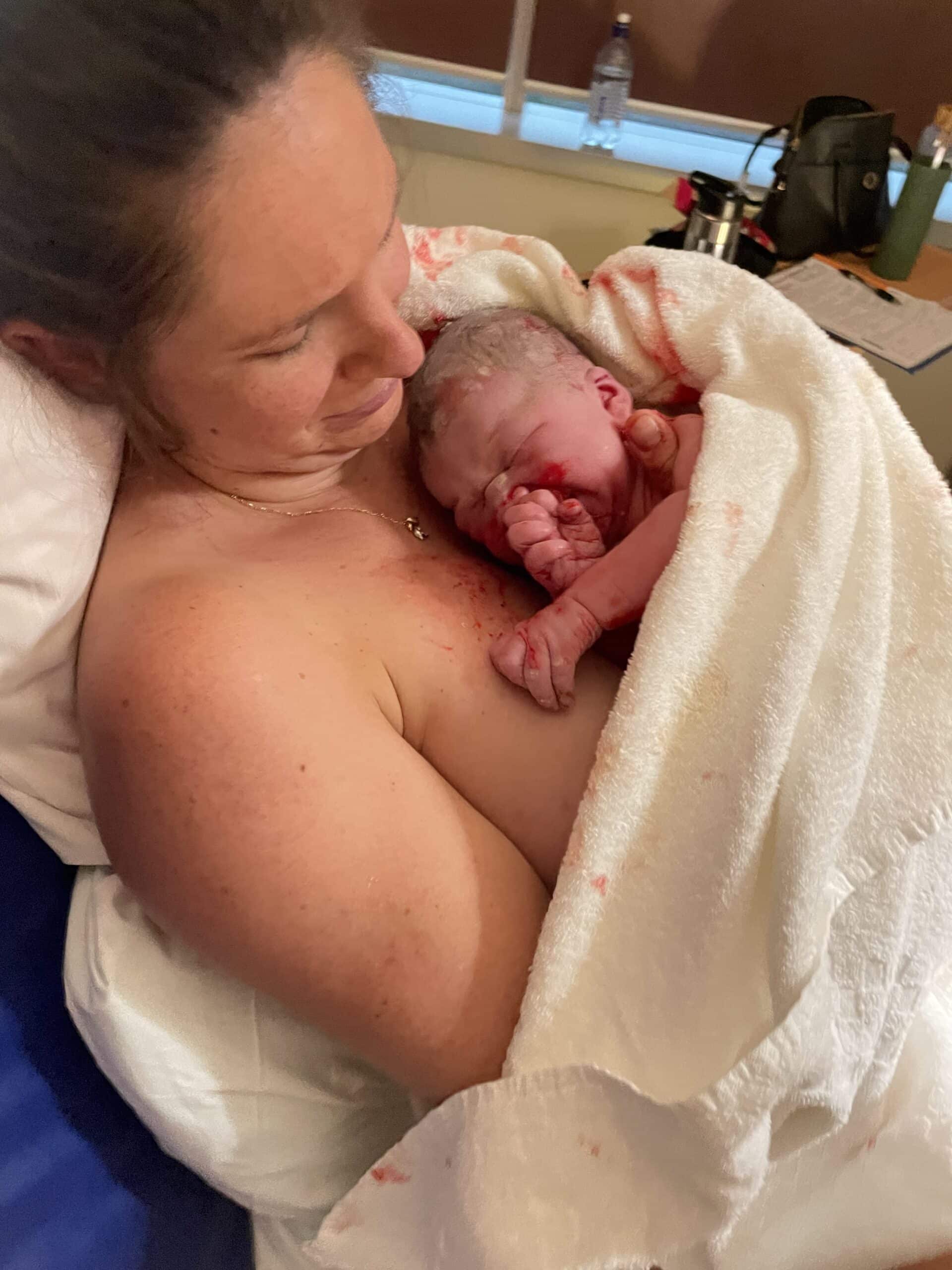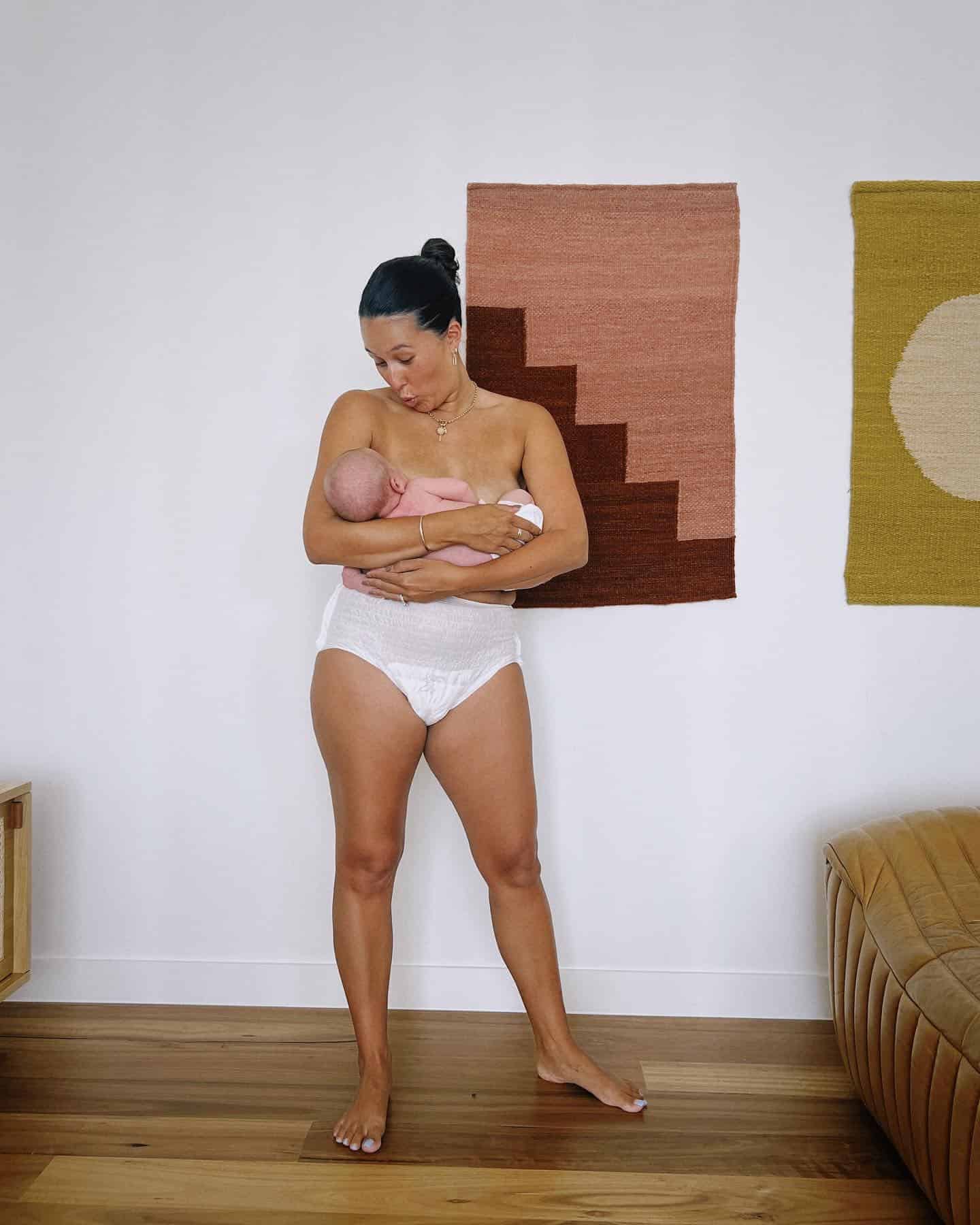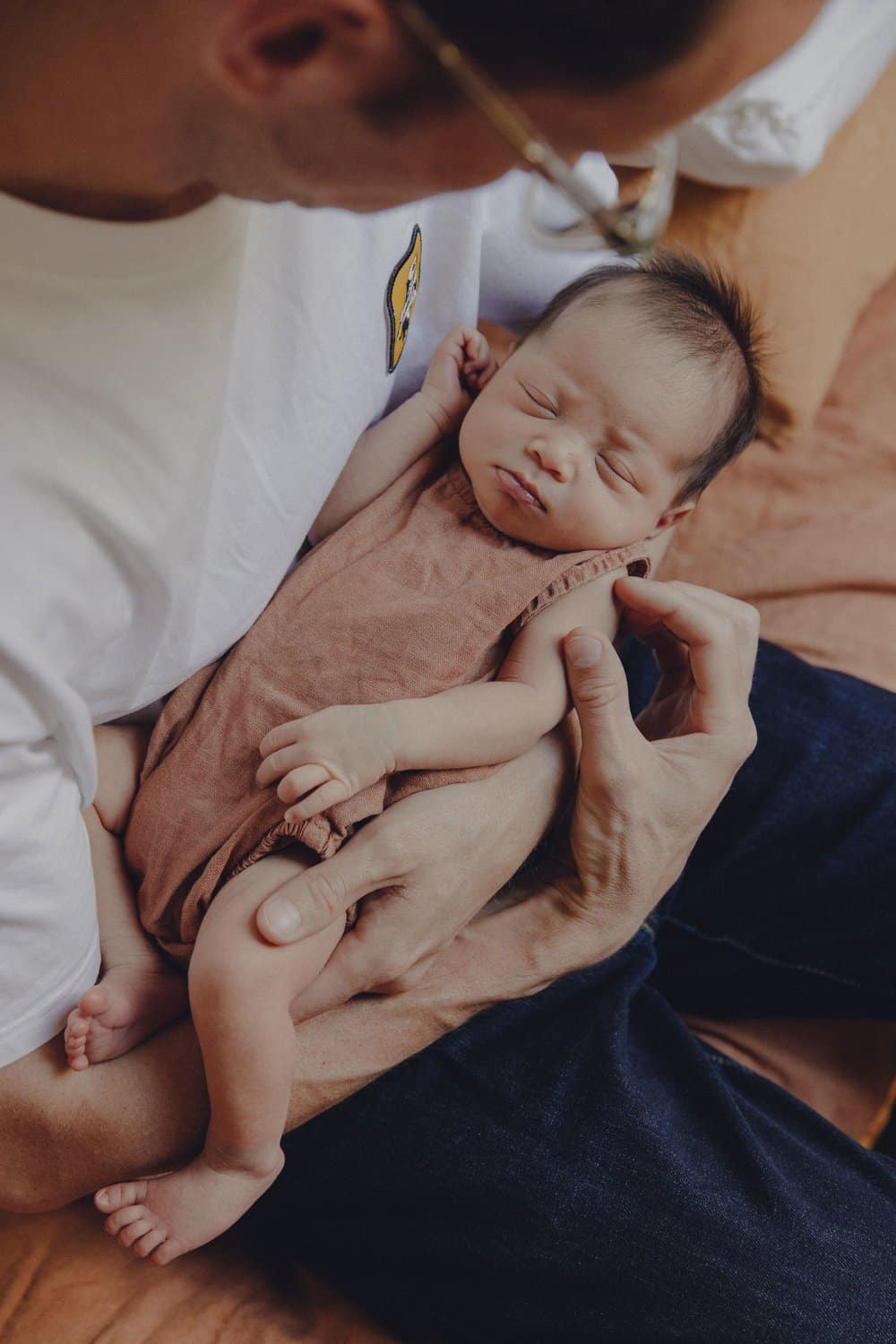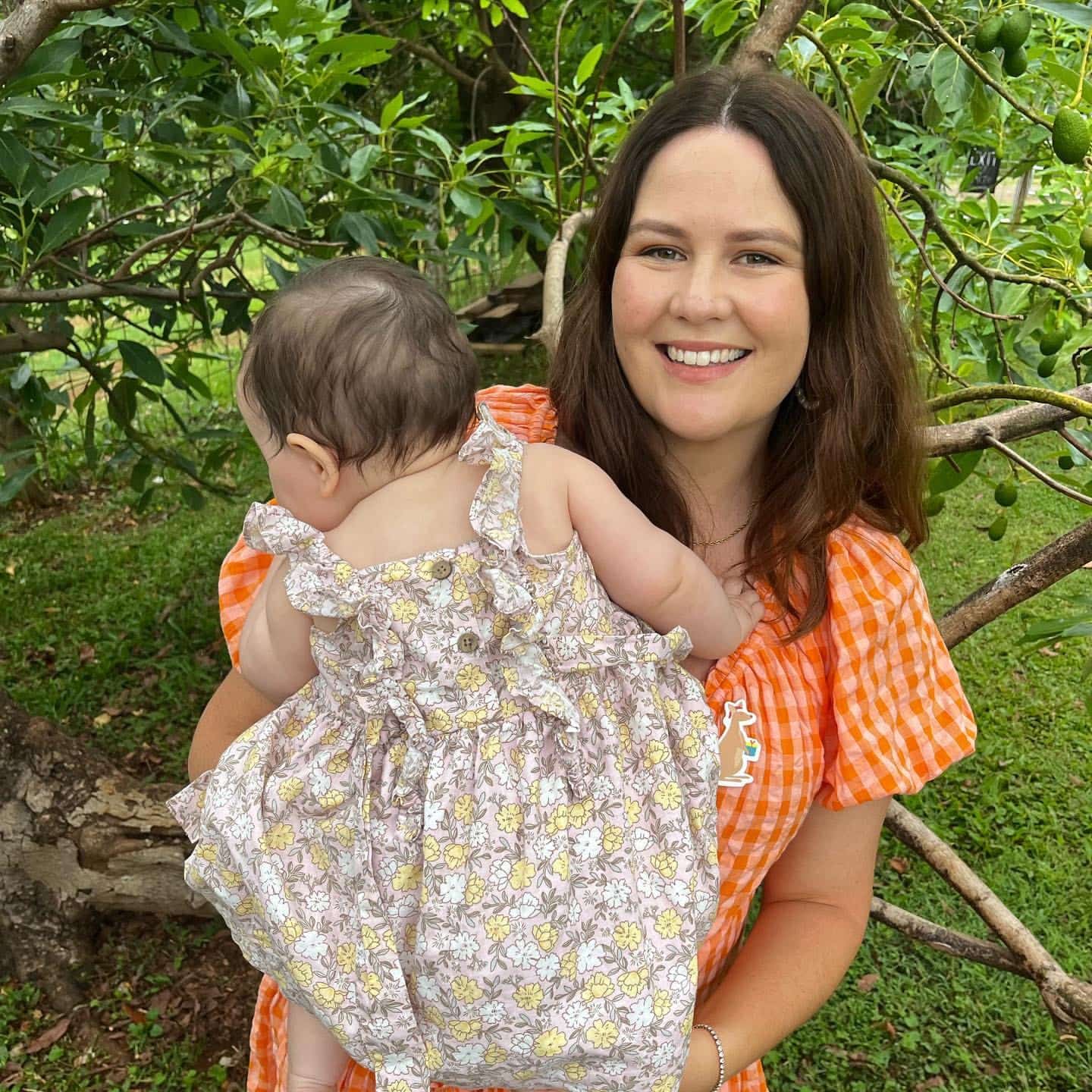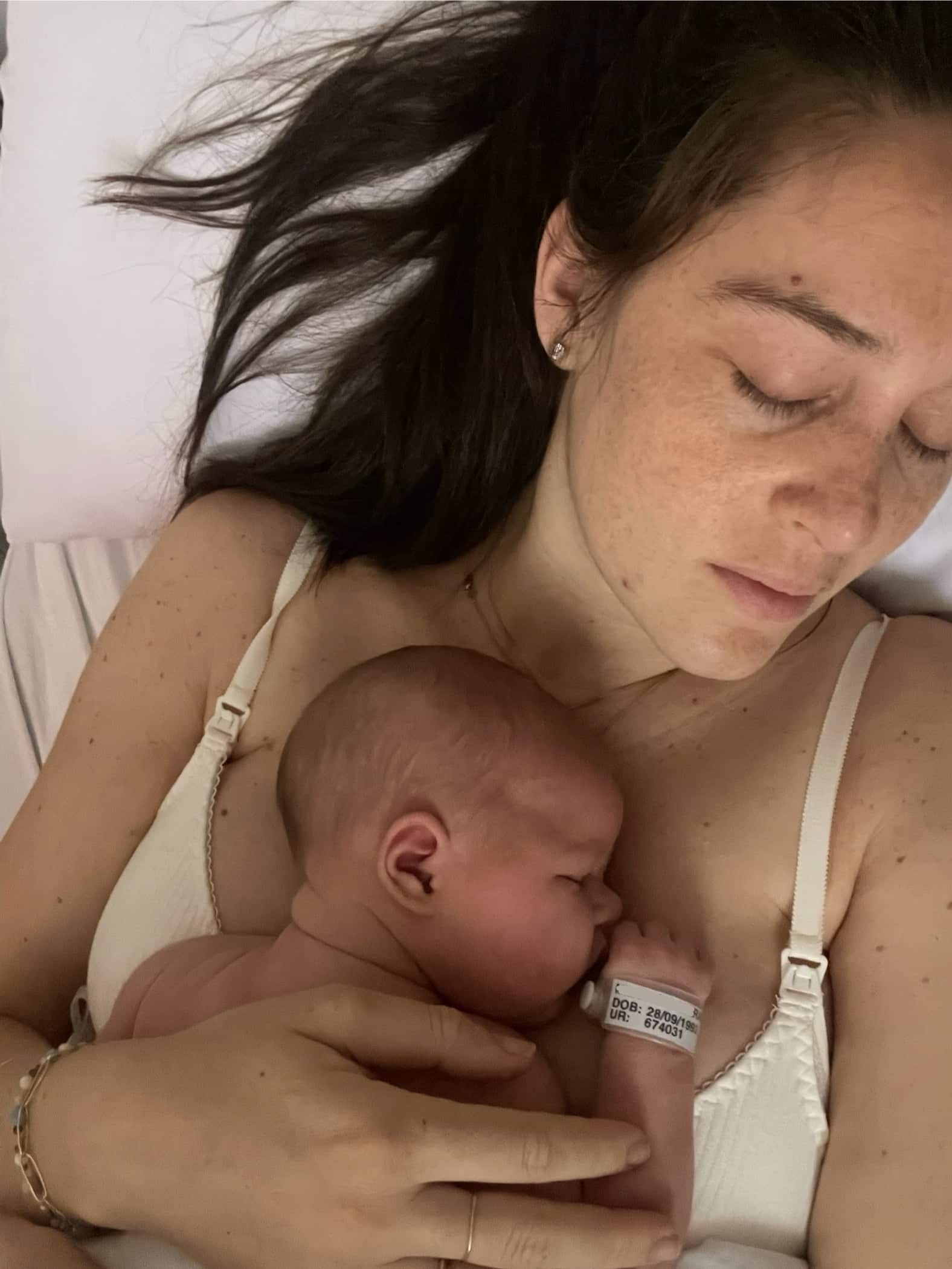Podcasts Tessa – Two births, Darwin private hospital closures, advocating for birthing mothers
EPISODE 561
Tessa – Two births, Darwin private hospital closures, advocating for birthing mothers
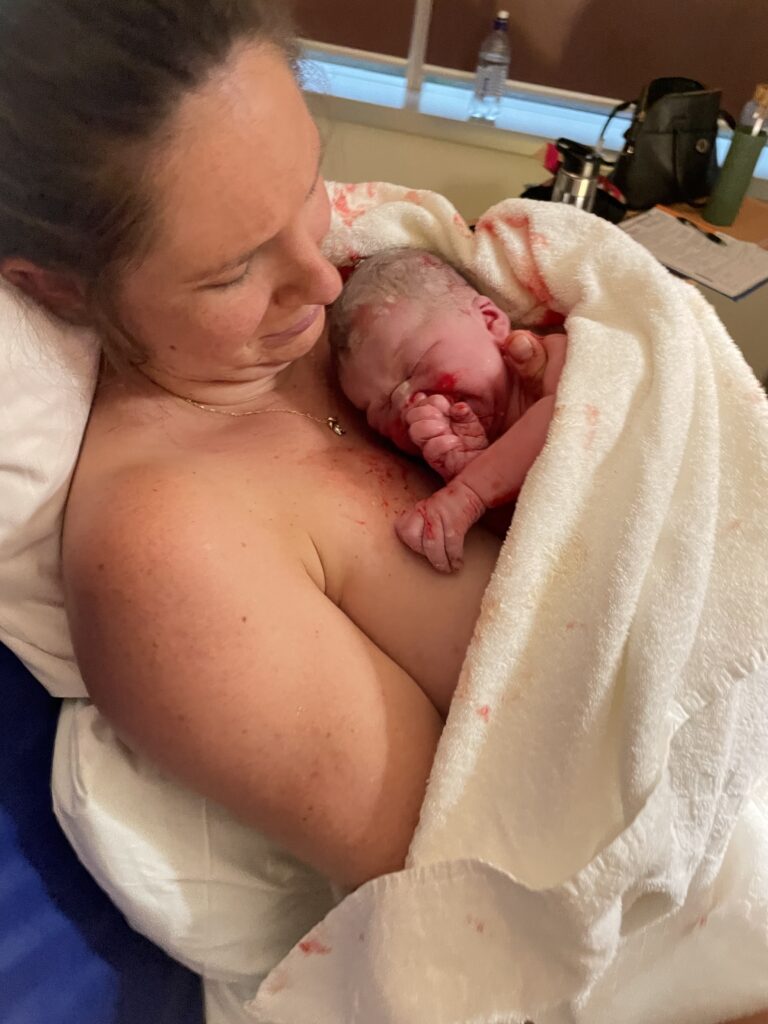
What follows is a story of systemic failure, inadequate government response, and the incredible strength of women advocating for basic birthing rights. Tessa takes us through the anxiety of not knowing where she’d birth, the government’s tone-deaf suggestion of a “luxury hotel retreat” for postnatal care, and ultimately labouring in a hospital waiting room for three hours because no birth suites were available.
This episode is both deeply personal and politically charged, highlighting the crisis in Australian maternity care and the urgent need for systemic change. Tessa’s experience serves as a stark reminder of what happens when profit margins matter more than birthing mothers.
Tessa and her husband Troy, high school sweethearts living in Darwin, had always planned to start their family after Tessa achieved partnership at her law firm. “I’m a lawyer and I’d been made partner in the firm I was working for, and that was sort of my career goal that I wanted to achieve before having babies,” Tessa explains. When COVID cancelled their wedding plans in 2020, they decided it was time to try for a baby.
After coming off the pill, Tessa experienced irregular cycles for months. “When I’d spoken to the doctor, they’d said it could take, you know, sort of 12 months to get my cycle back. I’d been on the pill for a really long time.” But after a particularly challenging day at work, she told Troy, “that’s it. Let’s just give it a crack” – and conceived Frankie on their first attempt.
Tessa’s pregnancy with Frankie was remarkably smooth. “I was very, very lucky with Frankie. I had very minimal morning sickness, you know, just as long as I ate something first thing in the morning, I felt fine.” She chose private obstetric care with Dr O’Callahan at Darwin Private Hospital, valuing the continuity of care and comprehensive service.
Preparing for birth, Tessa embraced hypnobirthing techniques and attended hospital birth classes. “I was hoping for, you know, very much low intervention. Intended to stay home for as long as I possibly could,” she recalls. Her waters broke at 40+2 weeks, and labour progressed rapidly – perhaps too rapidly for a first-time mother.
“By the time we left home, I was actually starting to have contractions. They weren’t, you know, super strong, but they were quite regular,” Tessa remembers. At the hospital, she was already four centimetres dilated. “After hearing all the stories about first time labours taking a really long time, I was quite surprised.”
The birth itself was everything Tessa had hoped for. She laboured in water, used her TENS machine, and delivered Frankie after just three hours at the hospital. “She came out with her hand up next to her face. So I did have a first degree tear that had to have two stitches or something, but nothing major.” The five-night hospital stay was blissful: “They fed us every day and, you know, we used their cloth nappies, they did all the washing, and having the midwives on call was really reassuring.”
Four years later, when Tessa was 28 weeks pregnant with her second baby, everything changed. “In February, healthscope announced without any warning to anybody that they were closing their maternity wards in the Darwin and Hobart private hospitals,” she explains. “No one contacted us. It was just broken in the media.”
The announcement came as a complete shock to everyone involved. “My brother had actually sent me a message and said, oh, what’s this mean for you? And I went, what, what are you talking about? I don’t even know anything about this.” When Tessa called her obstetrician’s office, they’d only found out thirty minutes before the public announcement.
The government’s response was woefully inadequate. “It became apparent almost immediately that the NT government had known that this was coming. Obviously they couldn’t make any sort of public announcement about it because it’s commercial in confidence information. But they had been aware for about six months that this was on the cards.”
What followed was months of uncertainty and advocacy. The government’s solution? A “luxury retreat” at a hotel with minimal medical support. “Originally they’d announced that there would be a midwife, 24-hour midwife support… It transpired that that wasn’t the case and then it changed to the domiciliary midwives would come on days one and two.”
Tessa became part of a group of women advocating for better solutions. “Those ladies had reached out to me and asked if I’d sort of like to be part of the group of women who were advocating. And we sort of gave some interviews in the local media and would be on the radio when the health minister was on the radio asking questions.”
The head of obstetrics made a particularly tone-deaf comment that “the private women were looking for Instagrammable rooms. And of course that didn’t go down particularly well because that’s not at all what women are looking for with their postnatal care.”
When Tessa went into labour with Millie at 40+2 weeks, the reality of the system’s failures became starkly apparent. Arriving at the public hospital, she was told there were no birth suites available. “The birth suites were full. The CTG monitoring room was full. And when we presented, the midwife did no checks. They didn’t check my pad for meconium. They didn’t check baby, they didn’t check me. They just said, oh look, come into this waiting room outside of birth suites.”
What followed was three hours of labouring in a bright, loud waiting room with other families.
“There were two other women in there and a toddler. And it was very bright and loud and it was just sort of this room with a kitchenette and a couple of couches.” Tessa had to labour in corridors, receiving basic medical checks on a couch in the waiting room while people came and went making coffee.
“Every time I’d sort of establish my contractions, we’d get interrupted. Someone would come in, they’d turn the lights on and my contractions would just fizzle out. Not oxytocin inducing at all.”
When they finally got into a birth suite at 12:15 AM, labour progressed quickly. “As soon as we got in there things just established quite quickly and I knew things were moving along.” Despite the traumatic start, Millie’s actual birth was positive. “I think I pushed twice and Millie came out.”
However, Tessa experienced a postpartum haemorrhage, losing about 500ml of blood and requiring manual removal of clots – “the most painful experience, it’s worse than actual labour.” The complications meant a 24-hour hospital stay with intravenous antibiotics.
Tessa’s experience highlights the broader crisis in Australian maternity care. “The private hospital was seeing between 250 and 300 births a year… The numbers they gave us were specifically 61 women who had already been admitted, but were not gonna be able to birth at the private hospital.”
The government insisted they could “comfortably absorb” the extra births, but the reality was different. “There were women who were recounting stories of labouring for a long time in corridors at the hospital because there were no birth suites available. Not able to get appointments with their midwives because there’s a midwife shortage around the country.”
The morning after Millie’s birth, the local paper ran an article from the head midwife claiming they had “comfortably absorbed the births from the closure.” Reading this after spending three hours in a waiting room during labour was particularly galling for Tessa.
Despite having a newborn, Tessa continues advocating for change. “I just really don’t want somebody else to have to go through that. And if I as a lawyer with all of my skills and knowledge and ability to advocate for myself had that experience, what’s happening to women who don’t have those skills?”
She emphasises that this isn’t just about private versus public care: “We’re not saying you won’t get a wonderful birth through the public system. Women choose that as their option all the time. But to not have the choice to have an alternative method of care and particularly one that allows for that continuity of care… that’s really difficult.”
The closure has left Darwin – a capital city – with no private obstetric care and no private maternity services. “We’re a capital city. We’re not… not that women in regional or remote centres should have any lower standard of care either, but it’s pretty concerning.”
Tessa’s story is a powerful reminder of what’s at stake in the ongoing crisis of Australian maternity care. Her experience – from the anxiety of not knowing where she’d birth to labouring in a waiting room – represents a systemic failure that affects not just individual women, but the entire healthcare system.
“If people don’t talk about it, if we don’t keep the conversation going, there won’t be change. It’ll just get worse,” Tessa concludes. Her courage in speaking out, even in the vulnerable postpartum period, exemplifies the strength of mothers fighting for basic birthing rights.
For expectant mothers, midwives, and doulas, Tessa’s story serves as both a cautionary tale and a call to action. The fight for quality maternity care continues, and it will take all of us to ensure that no woman has to labour in a waiting room ever again.
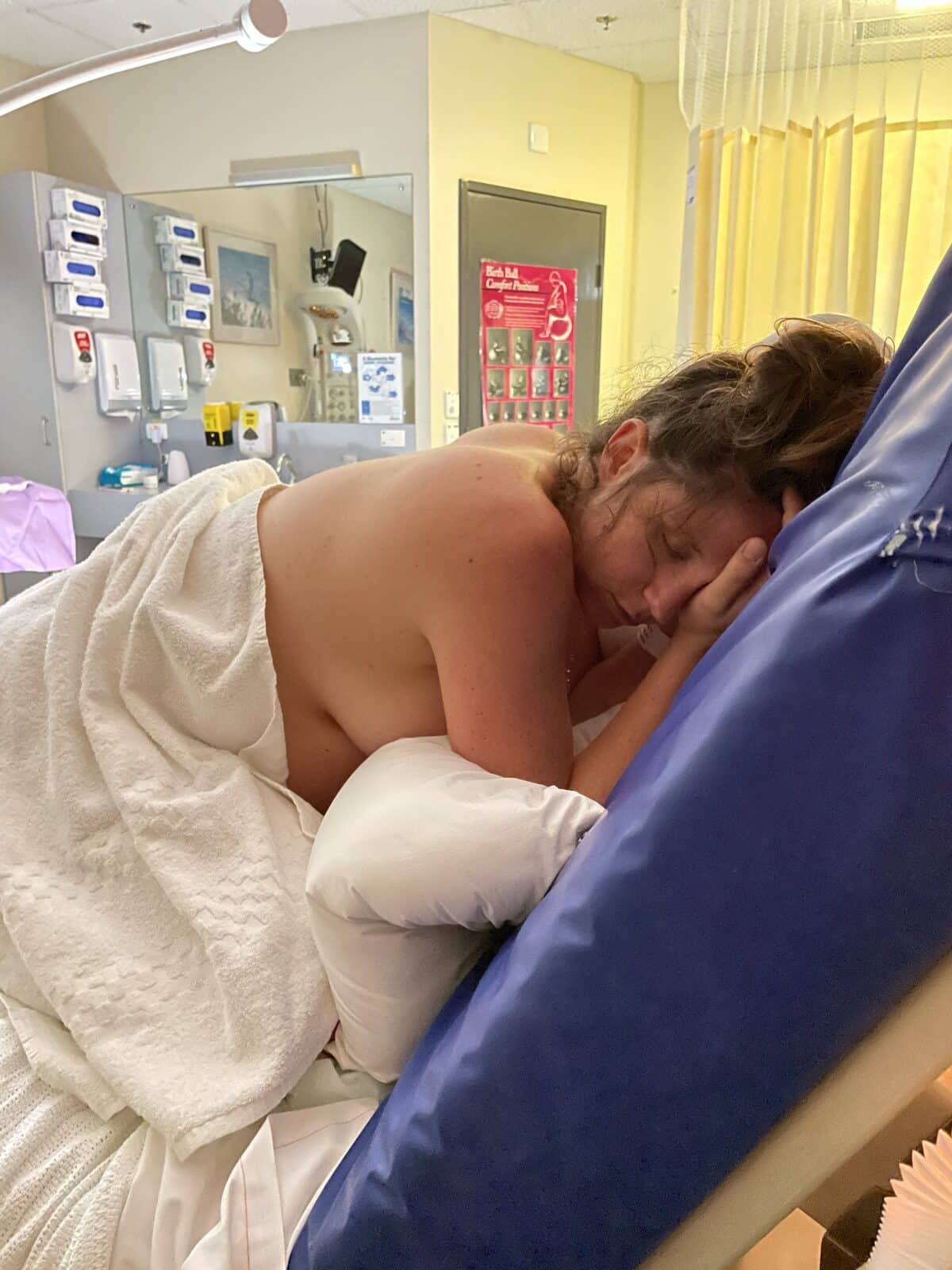
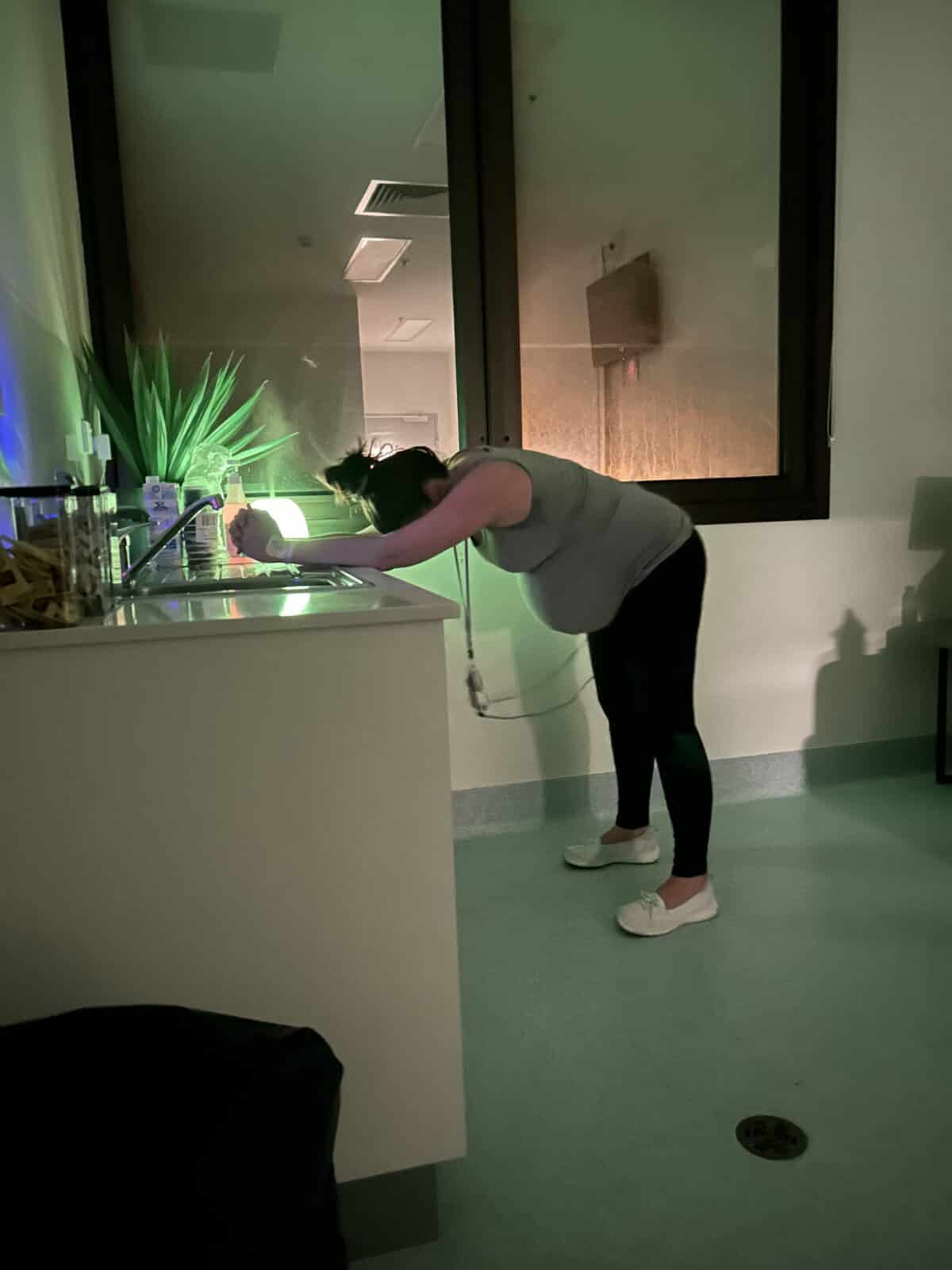
Episode Sponsor
Pregnancy is beautiful, but it can come with its share of discomfort. That’s why Little Company in Collingwood — and their sister spa, About Time in Torquay — offer dedicated pregnancy-safe treatments that support you through every stage — from the very beginning right up until the final days.
Their Pregnancy Ritual Facial is a blissful, tailored experience designed to calm hormonal skin changes and restore radiance, using products that you can trust for you and your baby’s wellbeing. Their Pregnancy Massage — using a pregnancy pillow, adjustable beds, and experienced therapists who adapt the massage to your body’s needs on the day. Using Pure Mama’s pregnancy-safe product range, this restorative massage is designed to ease muscular tension, support circulation, and help you feel at home in your changing body.
Whether you’re in Melbourne or down the coast, Little Company and About Time are here to nurture you — and your baby — through it all. You can enjoy 15% off all pregnancy treatments for the year of 2025. Put ‘ABSxLTCO’ in appointment notes and the discount will be applied when payment is taken post treatment.
Book your moment of care at littlecompany.com.au or atthebathhouse.com.au
Categories
Related Products
-
Birth Combs: Harness Your Body’s Natural Pain Relief
$24.95Crafted from smooth, natural wood, our birth combs activate specific pressure points in your hands that trigger your body’s innate pain-relieving responses.
Join the conversation
Sign up to get the latest updates, freebies, podcast releases straight into your inbox
@AustralianBirthStories
Follow along with us
@AustralianBirthStories
Follow along with us
@AustralianBirthStories
Follow along with us
@AustralianBirthStories
Follow along with us
@AustralianBirthStories
Follow along with us
@AustralianBirthStories
Follow along with us
@AustralianBirthStories
Follow along with us
@AustralianBirthStories
Follow along with us
@AustralianBirthStories
Follow along with us
@AustralianBirthStories
Follow along with us
@AustralianBirthStories
Follow along with us
@AustralianBirthStories
Follow along with us
